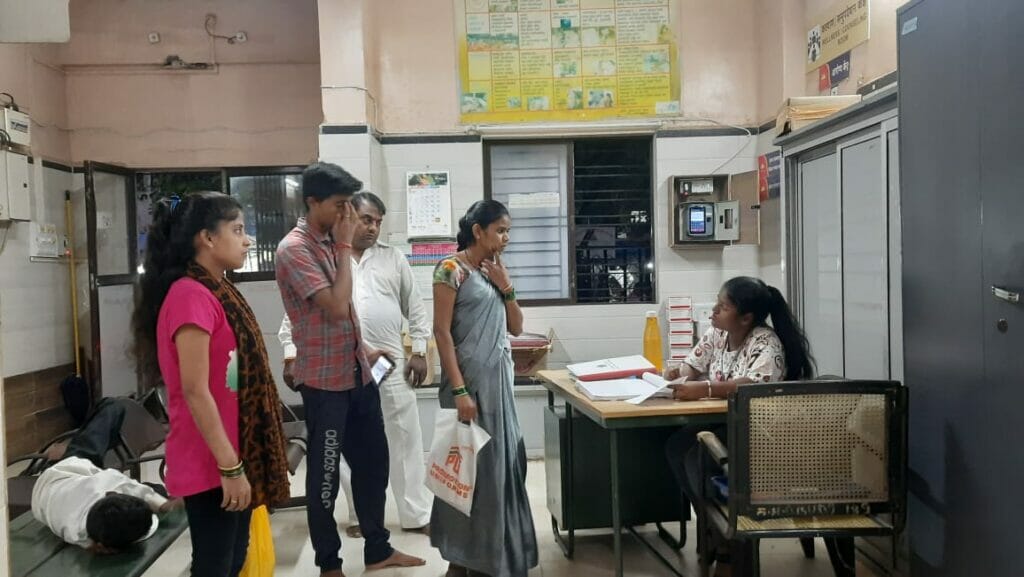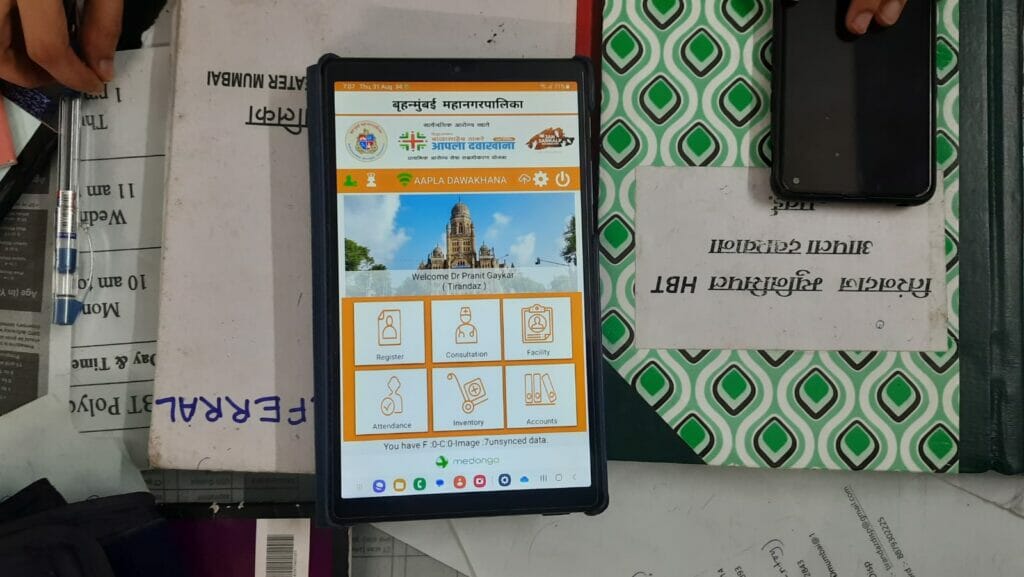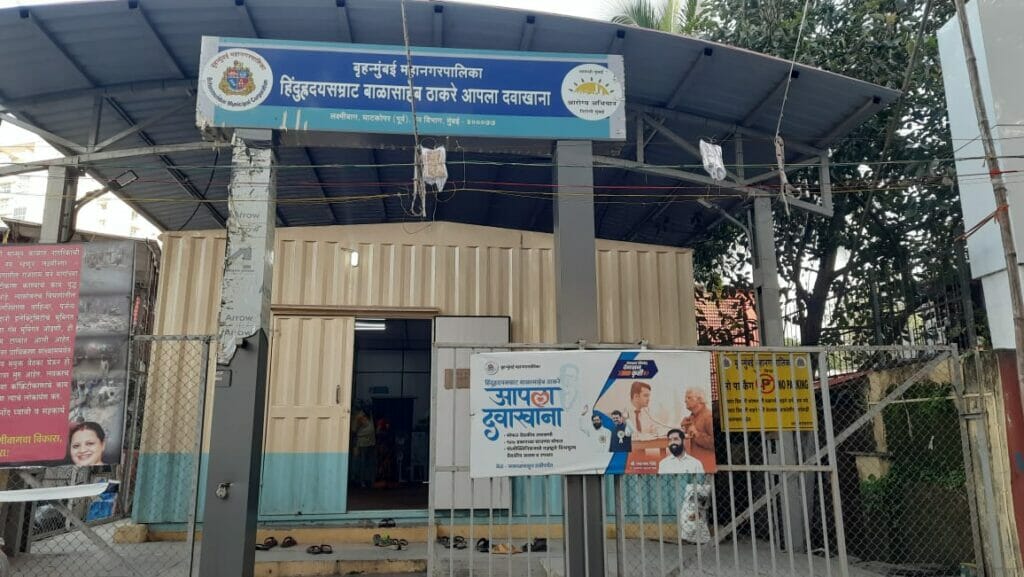During the Covid-19 pandemic, global healthcare systems went through a massive shock. In India, Mumbai was one of the worst affected cities with innumerable cases and deaths. The pandemic was an opportunity for the government to pause and look at the healthcare facilities in the city.
Any disease that is diagnosed and treated in early stages has less chance of turning severe or fatal. The World Health Organization (WHO) also recognises primary health care as the centre for achieving health and well-being for all, at all ages.
Through the scheme of Aapla Dawakhana, the state government has tried to make its primary healthcare system stronger. What is it about and how can it be useful for Mumbaikars?
What is Aapla Dawakhana?
The Aapla Dawakhana was introduced by CM Eknath Shinde, after he promised to strengthen the primary healthcare system, when he took charge as the chief minister of Maharashtra. The scheme is named after the late Balasaheb Thackeray and is officially called Hindu Hriday Samrat Balasaheb Thackeray (HBT) Aapla Dawakhana.
The idea was to create a clinic that is near and accessible as the first place for treatment for citizens. The clinic deals with diseases like fever, stomach illness, blood pressure, diabetes. It also offers diagnostic tests like blood tests and TB tests etc.
Basically, everything that does not require hospitalisation can be treated here. These clinics have a small team of five staffers – one doctor, one nurse, one pharmacist, one lab technician and one administrative member.

How were they set up?
The executive health officer Dr Daksha Shah said, “We reviewed the population of the ward and we have created one Dawakhana for population of 20 to 25 thousand. We calculated the number of existing clinics and developed more based on requirements.” In every ward, two to three dispensaries, polyclinics and porta cabins have been set up.
When Citizen Matters spoke to the patients, they said their homes were not more than 10-15 mins away from the dispensary. “In places like Dharavi, where the population density is very high, the BMC might also create more such dawakhanas. More polyclinics will be added,” said Dr Daksha.
Read More: Monsoon maladies on the rise, conditions worse than last year
How is Aapla Dawakhana different from a normal dispensary?
“We already have dispensaries, which work from 9:00 am to 4:00 pm. With Aapla Dawakhana we have extended their timings from 3:00 pm to 10:00 pm. Also, these clinics have now been provided with a laboratory, medicine room, OPD and dressing room. New additions such as porta cabins have been set up in informal settlements. The Aapla Dawakhana scheme aims to cater to the working population of Mumbai as well.
“In a lot of places, healthcare access was required in the evening. People are usually busy during work hours and they don’t get time to visit a clinic or hospital. So, we made it available in the evening and we have got a huge footfall in the evenings, especially in places like Dharavi,” said Dr Daksha.
What are the services and what does it cost?
Treatment at Aapla Dawakhana is completely free of cost. It provides free medicines and also provides free consultation, treatment and diagnosis. It eliminates the financial burden of getting decent primary medical help for patients.
“To avail services like X-ray, we give coupons to the patients. They can show it to the private labs for free tests. The BMC has tied up with the private labs that let the citizens do tests for free,” said Dr Praneet Gaykar, who is in-charge of the Aapla Dawakhana of Powai market area.
“We had the health post earlier also, but this kind of facility was not there. The medicines are so effective that I get well by just taking one dose. Many people cannot afford medicines but here we get them for free,” said Chandani Milind Waghmare, a patient.
What is the budget for this scheme?
For Aapla Dawakhana an outlay of Rs 3,501 crores has been proposed under scheme expenditure for the Public Health Department in Maharashtra’s budget of 2023-24. The government promised to open 700 such clinics across the state. As per the BMC’s document, there are 102 Aapla Dawakhanas spread across the 277 wards of Mumbai. Of these, 59 are dispensaries, 28 are porta cabins and 15 are polyclinics.

How are records maintained at the clinic?
The medical history and other necessary information are saved digitally along with patient’s Aadhar number. It is easier to maintain the records digitally, as many patients often forget to bring their case papers. “We insist that patients bring the case papers (a hard copy of the details of the disease and other personal information of the patient). But many of them forget and we need the medical history,” said Yashashri, a receptionist at Aapla Dawakhana Powai.

Are these clinics open to all?
While a majority of patients belong to the poorer sections, the middle-class population is also visiting these clinics. The initiative is not for a particular section of population. It is a free health service for all citizens.
“We provide primary health services. If the patient needs to consult a specialist, we refer them to polyclinics instead of sending them directly to higher centres like Sion Hospital, JJ Hospital or KEM,” said Dr Praneet Gaykar.
“We are the ‘bajuwala’ doctors for every citizen as we are just a few footsteps away from their homes,” says Dr. Gretta, at Pant Nagar clinic. “If I don’t have any medicine in Pant Nagar, I can send the patient to the other dawakhana located two lanes away. In Pant Nagar, Ghatkopar we see a daily footfall of more than 90 people,” she added.
The introduction of these Dawakhanas is surely helping in making primary health care accessible. Patients hope that they remain functioning and well-maintained in the long run as well.
Where can I find the nearest Aapla Dawakhana?
Below is the list of Aapla Dawakhanas in Mumbai. It includes location and type of clinics. It also includes the details of five more structures, which are ready but not yet operational.